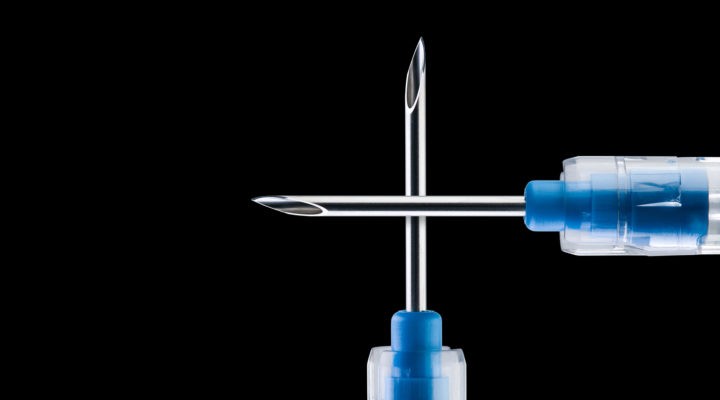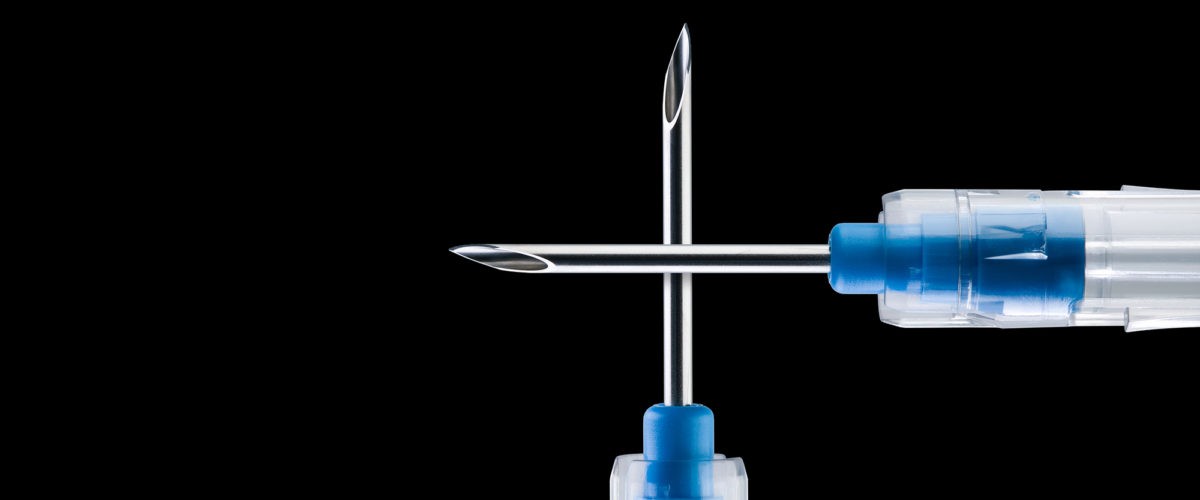With a vaccine for COVID-19 presumably coming sooner than later, the question of who will and who won’t choose to get the vaccine is looming large. And along with that are questions about the role of the church on matters of public health and safety.
The potential answers may be influenced by skepticism about the safety of a vaccine as well as politicization of every response to the pandemic — from social distancing to masks to lockdowns.
In a Gallup poll conducted Oct. 19-Nov. 1, before the announcement of vaccine progress by Pfizer/BioNTech and Moderna, 42% of U.S. adults said they would not get a vaccine, down from 50% in September. Meanwhile, the number of respondents saying they would get a vaccine has drifted from 66% in July down to 50% in September and back up to 58% in the most recent poll.
The results are “indicative of significant challenges ahead for public health and government officials in achieving mass public compliance with vaccine recommendations,” Gallup noted.
As for what is driving some to resist a much-anticipated resolution to the pandemic, 37% say they are concerned about the “rushed” timeline, 26% want to confirm it is safe, 12% don’t trust vaccines generally, 10% want to wait to see how effective it is, and 15% cite “other” reasons.
While poll responses are broken down by gender, political party, education, age and race/ethnicity, there is no breakdown for religious affiliation. Regardless, there is substantial interest in the religious community regarding what churches and church people can, will and should do.
A Christian ethics perspective
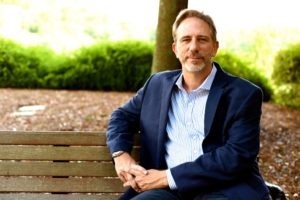 David Gushee, distinguished professor of Christian ethics and director of the Center for Theology and Public Life at Mercer University, said it is understandable that there is and will be some hesitancy in the general population to take the vaccine.
David Gushee, distinguished professor of Christian ethics and director of the Center for Theology and Public Life at Mercer University, said it is understandable that there is and will be some hesitancy in the general population to take the vaccine.
“I think that all of us, really people all around the world, are going to want to know with confidence that the vaccine shows every sign, according to scientific evidence, of being safe and effective,” he said. “The fact that it has moved so quickly relative to other vaccines naturally will lead to perhaps a little hesitancy.”
Still, it is in that space of hesitancy and concern where the church has a significant role to play, Gushee said.
“We have a chance to finally help make a dent in this awful disease and to, in the end, demonstrate love for our neighbors.”
“It may be that the church should first think about speaking of the virtue of courage in terms of some of our members feeling called and inspired to be among the early adopters of the vaccine,” he said. “I also think the call to love our neighbors would be an appropriate place for pastors to emphasize that as Christians take the vaccine perhaps on the front end of the process by showing some courage, we have a chance to finally help make a dent in this awful disease and to, in the end, demonstrate love for our neighbors.”
Gushee said a broader issue at hand is the fact that a certain percentage of the American population distrusts science and scientists, and a lot of the people in that camp are Christians. The trend dates back centuries, it worsened with the teachings of Darwin on evolution, and it really has never gone away.
“The new iteration of it is a kind of anti-elite, anti-science, anti-empirical kind of universe that I think the right wing in America is inhabiting,” he said. “While taking a vaccine shouldn’t be political in any way, if it is a political statement to trust science and scientists when it comes to something like a vaccine, then it’s a statement we’ll have to make for the well-being of the whole. It’s individualism versus concern for the common good, and I think Christians are called to concern for the common good.”
Gushee said the shuttering of churches along with everything else during the pandemic has limited the church’s ability to make much of a public contribution as it otherwise would.
A chance for the church to lead
“One of the things about the impact of COVID on the church is I think it has contributed to a deepening of our invisibility in the public arena in American life. And a good way to re-emerge, in my opinion, would be to encourage a skeptical public to just go ahead and be vaccinated if the evidence warrants it,” he said.
That encouragement could span the spectrum from Sunday morning sermons to providing space for vaccination events.
“I don’t know if it would even be possible to do vaccinations in churches, but leading by example could mean actually hosting vaccinations,” Gushee suggested.
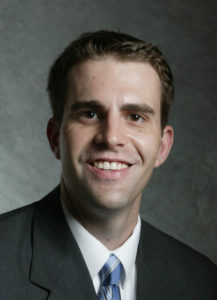
David King
David King, director of the Lake Institute on Faith & Giving at Indiana University’s Lilly Family School of Philanthropy, said the church definitely has a role to play because there is no other form of nonprofit as pervasive in the United States as church congregations.
“Congregations have to be a resource for instilling confidence in vaccines and promoting social trust.”
“Congregations have such a strong and trusted track record in providing social services, disaster relief and other forms of help,” King said. “They can’t not be part of the solution in getting the vaccine out. Congregations have to be a resource for instilling confidence in vaccines and promoting social trust. But I think as a provider, we’ll also see a lot of partnerships with congregations in helping to deliver a vaccine.”
Anticipate resistance
Still, there will be hesitance, and getting people to take the vaccine may provoke the same kind of pushback as getting people to wear masks, said Emily Smith, assistant professor of epidemiology at Baylor University.
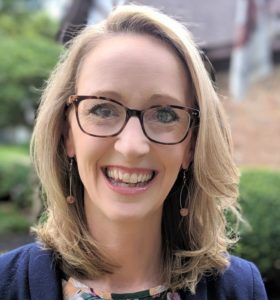
Emily Smith
“It seems like at the beginning of the pandemic everybody had solidarity and we understood, and then somehow it became political, and masks became equated with losing freedom and living in fear,” she said. “It seemed like the Christian community divided on masks — either you’re living in fear or you’re wearing it to protect your neighbor.”
Exacerbating the divided opinions on a vaccine are wild conspiracy theories — including that the vaccine contains a microchip for tracking or has byproducts from aborted fetuses — and simple distrust in the process, Smith said.
“The anti-vaxxer community is loud, but if Dr. (Anthony) Fauci or one of those experts says its safe, then they’ve done due diligence to make sure it’s safe,” she said.
The anti-COVID vaccine group is new and includes Christians who are skeptical of science.
Smith said some in the anti-childhood vaccine crowd will jump on board and reject the COVID vaccine as well, but the anti-COVID vaccine group is new and includes Christians who are skeptical of science and agencies such as the Centers for Disease Control.
“I think it’s a new wave of, ‘I will get the childhood vaccines for my kids, but I won’t get this because it looks too fast-tracked,’” she said.
Smith said another factor adding to the debate is the merging of religion and science.
“I think we’ve done a bad job in the faith community merging science, and on the other side of that, the science community seeing that there could be a faith motivation,” she said. “I do both. My science is motivated by my faith, but they don’t merge. And I think in the pandemic we’re seeing it merge and it makes both sides uncomfortable.”
Vaccine as a way to love your neighbor
Smith, a scientist and the wife of a Baptist pastor, said she looks to Galatians 5:13 when thinking about how Christians should respond to the vaccine.
“I think this is a way we can use our freedom to protect our neighbors. I just think it’s loving our neighbors; I think it’s the second commandment,” she said. “And it also is the best way to protect people around us. The more of us that get vaccines, that protection becomes bigger and bigger and bigger.”
Smith said she would love to see the Christian community be the first in line to say “yes” to the vaccine as a way of modeling love for one’s neighbors.
“We’ve done a terrible job with masks and losing our witness on that, but maybe vaccines can be a way to redeem it.”
“We’ve done a terrible job with masks and losing our witness on that, but maybe vaccines can be a way to redeem it,” she said.
On the scientific side, Smith cautions that whenever the vaccine is ready, it still will not be an immediate fix. It will require 80% of the population getting the vaccine before other precautions like masks and social distancing can be set aside. But a vaccine still is the best answer.
“Our ticket out of this is a vaccine,” she said. “It’s not herd immunity through just opening up the floodgates and letting everybody go for it in terms of no precautions. But this time next year it will be much better than what it is right now.”
Smith also warns that while hope is on the horizon, there still are difficult days ahead.
“Getting the vaccine when it is available will be crucial because I don’t think people understand the magnitude of this next surge that we’re going through,” she said. “We’re all hearing this is going to be a dark winter, and I don’t know how to emphasize how dark that’s going to be because I don’t want to scare people, but it’s so bad. So, there is an urgency there to get the vaccine when it does become available.”
Pastors can’t prescribe but can lead
Gaynor Yancey, professor of social work and director of the Center for Church and Community Impact at Baylor, said the hesitance of people to trust and take the vaccine provides an opportunity for the church and pastors especially to continue the work of encouraging people to follow the leadership of the Lord, but they can’t be “prescriptive.”

Gaynor Yancey
“In my heart of hearts, I’d love for everyone to have the vaccine and it work for everyone,” she said. “But on the other side of the coin is knowing that we give people freedom to make their choices. So I think pastors will have to be very careful in what they do, and we might have some who would say, ‘Yes, everybody get a vaccine,’ but they can’t demand that. And yet they can encourage people to continuously seek to do what they’re comfortable to do under the leadership of the Lord.”
Yancey said religious leaders need to be cognizant that some people may have other conditions that would prevent them from getting a vaccine.
“There are all these mitigating circumstances that people have to consider, and that pastors don’t know and leaders of churches don’t know,” she said.
“The common good perspective would tell us clearly that when you are here to work alongside each other, you are to care for each other in every way possible.”
On the other hand, Yancey said, “If people say, ‘I don’t have to worry about it,’ well the common good perspective is that we do have to worry about it. The common good perspective would tell us clearly that when you are here to work alongside each other, you are to care for each other in every way possible.”
She continued: “When you look at the backlash against wearing masks, you think, wow, to go to a vaccine is even harder for some people in what they would consider to be against their rights. I think it would be harder for a pastor to legislate that, but to encourage it and to have people seek their own actions around that I think is very appropriate.”
Yancey said it’s important to trust that people are going to do what God calls them to do and respect their decision when they’ve thought about it and prayed about it. Then give them time and space to change their decision with the help of God.
“Knowing that God is in control of everything — and I truly believe that — and how God works in our hearts, I would hope that we would be continuing to encourage our folks,” she said.
There is no arguing or debate about the fact that this has been an eye-opening time for everyone in every regard, Yancey concluded.
“What I think the church has been called to in this — and what we’ve all been called to which is closing up everything — has been a very different picture than we might have realized,” she said. “We’re learning a lot about ourselves as a country and individually: what we can handle and what we can’t handle.”
Related articles:
Why herd immunity is worse than other potential ethical concerns about a COVID-19 vaccine
What about the science, faith and ethics of a coming coronavirus vaccine?
The complicated story of Trump’s COVID treatment, stem cells and abortion politics
Your friendly neighbor epidemiologist has an important message for you

